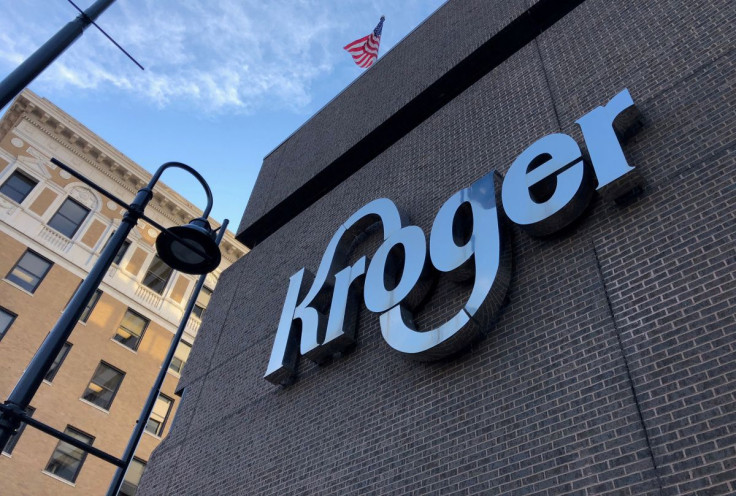Why The Kroger-Albertsons Merger Could Change The Game for Amazon, Walmart

The Kroger-Albertsons merger announced last week will create a new giant in the retail grocery space, which could change the game for Amazon and Walmart.
That's according to Anat Alon-Beck, professor of business law at Case Western Reserve University. "We're talking about two of the largest grocery chains merging—one of largest M&A deals in this space," she told International Business Times in an email.
"It's a deal that could completely reshape the current landscape. This new company would be so big that it could compete with the likes of Walmart and Amazon in the grocery sector."
Sean Turner, Co-Founder and CTO of Swiftly Systems, agrees: "Although Amazon and Walmart have dominated online grocery for years, the consolidation of two supermarket giants like Kroger and Albertsons will ultimately create fierce market competition," he told IBT.
Turner thinks the merger can help the new entity to combine resources and implement the technologies it needs to help accelerate and grow its online grocery business, as well as leverage a massive physical store presence and loyalty programs to continue developing its customer base.
Costas Mastoras, owner and president of New York-based Titan Foods and Optima Foods, sees the supermarket industry's consolidation resulting from the rising operation and overhead costs. They make it hard to stay in business and earn a reasonable profit.
"Our business costs have risen across the board," he told IBT in an interview. "And it becomes harder and harder to pass it on to consumers with squeezed budgets. Merging with a competitor could be one way to bring these costs down."
The rising cost of doing business in grocery retailing is a more acute problem for smaller supermarket chains operating at razor-thin profit margins. For instance, Kroger and Albertsons have an Economic Value Added (EVA) of roughly 3% in recent years, half of that of Walmart.
But that would change with the merger of the two companies, creating an entity with close to $200 billion sales, and more than 5,000 stores around the country. Wes Wright, CookOut News LLC's Founder and CEO, provides further insight into the changing competitive landscape after the merger, pointing to the enormous scale of the new entity.
"They'll be about 50% bigger than the next three largest supermarket chains (Ahold Delhaize, Publix, and H-E-B) combined on a 2021 revenue basis," he told IBT. "That represents tremendous buying power on the top line. In addition, they will see benefits on the cost side by reducing advertising, warehousing, and transportation costs from the scale of a combined operation. It also puts the combined organization neck and neck with (Walmart and Sam's Club) regarding grocery revenue and store count."
Still, the merger isn't a foregone conclusion. According to Professor Alon-Beck, the need for FTC approval comes with bad timing. She observes that news of the merger broke as Republican-appointed FTC Commissioner Noah Phillips announced he is stepping down.
"Phillips's departure comes at a time of tension between the Republicans and Democrats on the commission under Chair Lina Khan," she explained. "There is a reference to termination fees in SEC filings Section 8. If regulators say no to a merger, then there is termination, meaning that a so-called 'break-up fee' would apply—meaning Kroger would need to pay Albertson's $600 million."
That could prove to be a deal-breaker in one of the most important mergers in recent history.






